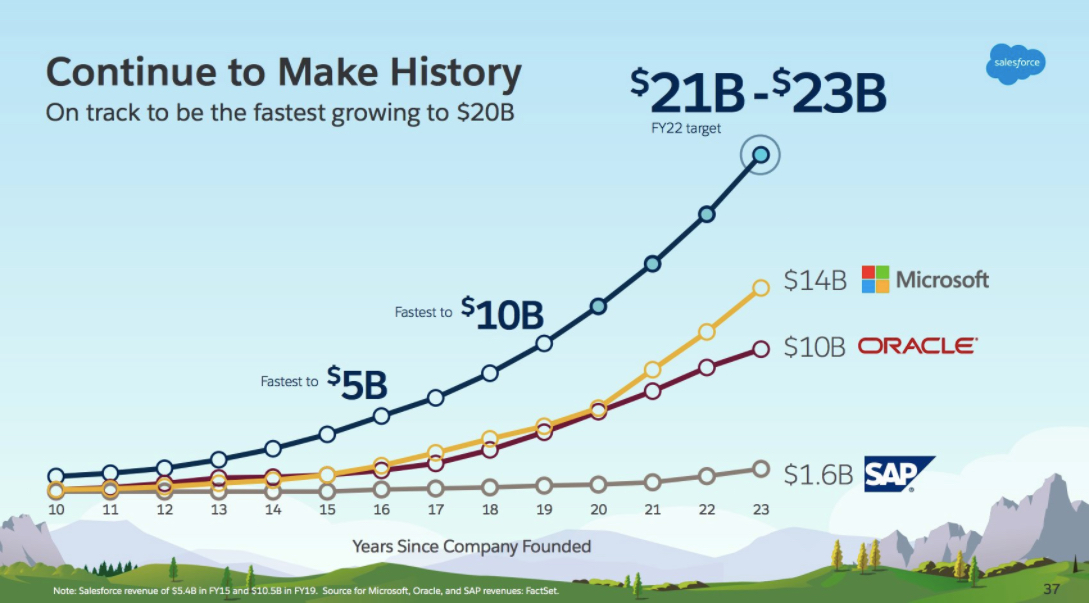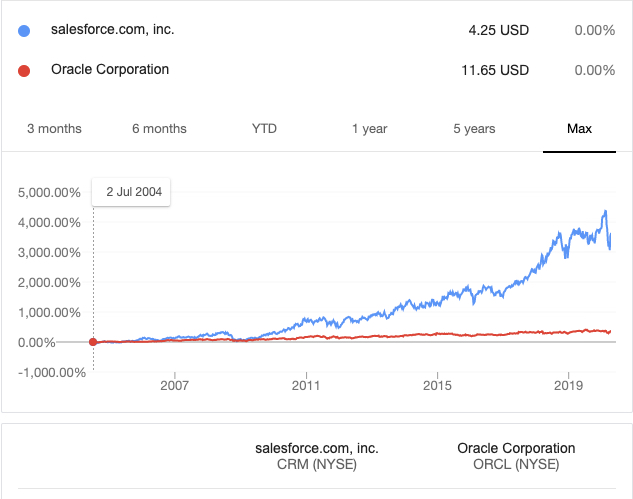In 2007 I joined a company I’d never heard of before called Salesforce.com. I started there as an Account Executive. In New Zealand, that’s a fancy way of saying I was in Sales.
I always thought I was good at Sales. I had a pretty upbeat attitude; if I believed in something I was hell-bent on convincing people of the benefits. Maybe that confidence is something that underpins the personality types of a lot of Sales folk.
However, what I realised very quickly was that I had joined a different beast of a sales machine. The people there were seasoned professionals, experts in their craft with technology and processes to support the machine.

Just to put some of this into context Salesforce has outstripped every other Enterprise Software Vendor in growth reaching milestones the fastest. First to 5, 10, 20 billion respectively.
Whilst some may argue that they have different business model and products. In fact, Salesforce was delivering software via a service long before any of the others. The one thing that they all have in common is that they are selling to a customer.

Another reference point is how their stock has performed. If you spend plenty of time researching company stocks you’ll notice that there is lots of volatility. Many gains and losses are due to market pressures and performance may be associated with isolated incidents like product launches and market perception.
Salesforce has grown in stock value by over 3000% since 2007 when I joined the company. Demonstrating a consistent growth trajectory that would be the envy of any other company.
One of the key measures of a companies performance is the ability to accurately forecast. Providing market with predictability around your valuation. I remember sitting in on a conversation with the CFO who told a group of us how important forecasting is to the performance of the company. What really blew me away was that he could tell us the day 24 months out the company would surpass 10 billion in revenue. Only with a machine like Salesforce could you experience this.
So my mission became how do I absorb this as quickly as possible. After spending 10 years there here are my five key takes aways on Salesforce Success.
Repetition and Uniformity
One of the first things that Salesforce does for all of their employees is to send them to San Francisco for a boot camp. The boot camp consists of a two-week program that is run by a team of dedicated people. The boot camp is competitive and a “Top Gun” is announced as the conclusion. I won Top Gun in our class of over 100 newbies with fierce competition.
If you have been to a few Salesforce events whether they are Dreamforce’s or World Tours. You’ll notice that the format for about ¾ of it is exactly the same. This isn’t an accident, it’s by design – one of the key things in building your brand is owning the message.
At the Bootcamp, every single new employee learns the stories behind the slides. They are encouraged to incorporate local examples and data points. Becoming a great storyteller is all apart of the onboarding process.
The Sales Enablement team that is responsible for the onboarding program are also responsible for developing Sales aids and Sales skills. I can’t describe how exceptional the work that this team produced was. With over 70 acquisitions and 3 new releases a year. The products were changing and the market message would change as well. So they were forever either rebuilding or evolving to arm the Sales team with skills, aids, stories and programs to ensure they were equipped to sell. Whilst all this was taking place – they kept the discipline of the format that was set out from the start.
It’s really hard to quantify the impact that this investment has had on Salesforce. It is however critical to the success of Salesforce and the equity of their brand. Regardless of the size of your business, you need to invest in onboarding employees, have clarity of your message and laser focus on sales execution.
